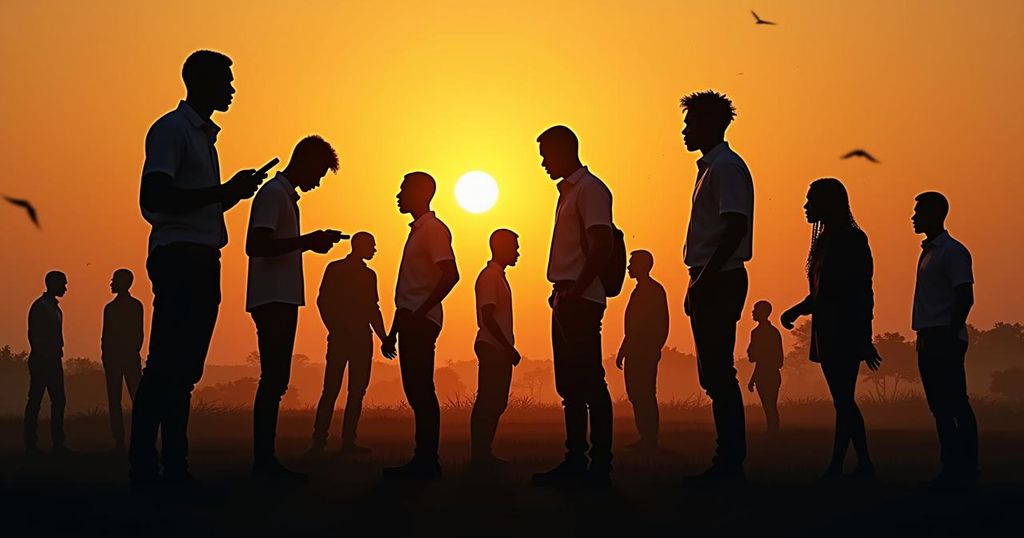Mozambique Electoral Outlook: A Pivotal Moment for Change

Mozambique is set to vote in elections that could introduce a younger president for the first time since independence in 1975. Approximately 17 million citizens are eligible to partake in this electoral process, which will also fill parliamentary and provincial positions. Key candidates include Daniel Chapo from the ruling Frelimo party, opposition leader Ossufo Momade from Renamo, independent candidate Venancio Mondlane, and Lutero Simango from the MDM. Key election issues include armed conflict in Cabo Delgado, corruption, unemployment, and climate resilience. The results will be officially tallied after 15 days, with vote counting commencing immediately after polls close.
Mozambique is poised for a significant electoral event on Wednesday, as citizens prepare to vote for a new president, marking a potential generational shift in leadership. This election is particularly noteworthy as it may introduce a president born after the nation gained independence from Portugal in 1975. Approximately 17 million individuals are eligible to participate in these polls, which will concurrently select parliamentary representatives and provincial officials across the country’s 11 provinces. Current President Filipe Nyusi, aged 65, from the ruling Mozambique Liberation Front (Frelimo) party, is stepping down after eight years in office. His administration has been marred by corruption scandals, notably the tuna bond scandal, which resulted in significant financial losses for the nation and prompted the incarceration of high-ranking Frelimo officials, including a former finance minister now serving a prison sentence in the United States. On the electoral battlefield, candidates are presenting divergent visions. Daniel Chapo, at 47 years old, represents Frelimo’s continuity, having been propelled into political prominence quickly and promising to restore peace in the conflict-stricken Cabo Delgado province. Meanwhile, Ossufo Momade, aged 63, leads the opposition Mozambican National Resistance (Renamo), which has struggled to gain a foothold in parliament. He brings historical context to his candidacy, having been a notable figure during Mozambique’s civil war and the subsequent peace agreements. Venancio Mondlane, 50 years old and backed by a coalition of nine political groups, has garnered considerable support among younger voters, advocating for change and improvements in employment and healthcare, while Lutero Simango, the 64-year-old leader of the Democratic Movement of Mozambique (MDM), concentrates on job creation through the utilization of the nation’s natural resources. The key issues of this election include a persistent armed conflict in the Cabo Delgado province, a looming economic crisis exacerbated by high unemployment and corruption, and the necessity for climate resilience in light of past natural disasters. Candidate pledges reflect an awareness of these pivotal matters, with promises of enhancing security, job creation, and tackling the hunger crisis. As vote counting begins immediately after the polls close, with official results anticipated within 15 days, the atmosphere remains charged, particularly among the youth who demand transformational change in governance. This election stands as a crucial moment for Mozambique, with the potential to redefine its political landscape and tackle the significant issues confronting the nation.
The elections in Mozambique are contextualized by a backdrop of political tumult and social unrest. Following years of independence from Portuguese rule, the country has struggled with governance characterized by corruption, economic woes, and armed conflict, particularly in the Cabo Delgado province. The upcoming elections represent the first chance for a president born after independence to lead the nation, reflecting a generational shift and the yearning of younger Mozambicans for change. The interplay between the ruling party and opposition forces is pivotal, as voters grapple with the legacy of past administrations while seeking candidates who can effectively address pressing issues such as job creation, security, and climate resiliency in a nation plagued by environmental challenges and corruption scandals. The results of this election could significantly alter Mozambique’s political trajectory and the daily lives of its citizens.
In conclusion, Mozambique’s impending elections signify a pivotal moment in the country’s political evolution, potentially introducing a new generation of leadership. With pressing issues such as armed conflict, unemployment, and corruption at the forefront of voters’ concerns, the electoral process will test the ability of candidates to resonate with an electorate eager for change. As the nation stands at the precipice of a potentially transformative electoral decision, the outcomes will inevitably shape Mozambique’s future trajectory and its response to ongoing challenges.
Original Source: www.aljazeera.com







